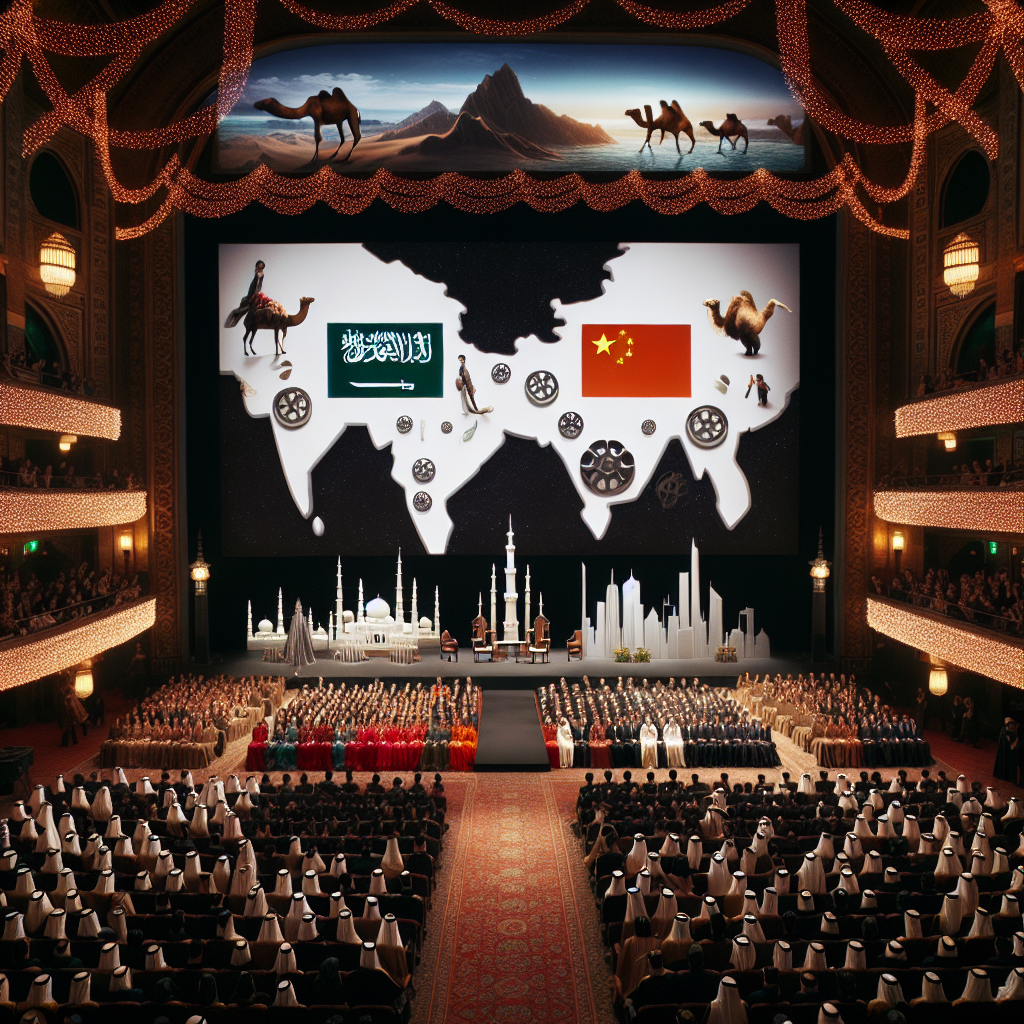Palestinian-American writer-director-actor Cherien Dabis has been crafting deeply personal familial narratives since her acclaimed debut, Amreeka (2009). This film, which tells the poignant story of a Palestinian mother and son relocating from the occupied West Bank to Chicago after winning a green card lottery, showcased Dabis’ remarkable storytelling ability. While her follow-up, May in the Summer (2013), didn’t quite capture the same narrative confidence, her latest work, All That’s Left of You, contains moments that remind us of her unique flair, even if the film’s expansive exploration of a family grappling with generational trauma feels somewhat excessive.
It’s important to note that Dabis’ indulgence in this latest project is somewhat understandable. The film chronicles a Palestinian family’s journey through nearly eight decades of Israeli occupation, spanning three generations. Given the ongoing turmoil in the region, the complex history of Palestine’s occupation is often overlooked in mainstream cinema. Dabis aims to fill this gap with All That’s Left of You, striving to create a comprehensive narrative that captures a period too vast to encapsulate in a single film. While the execution is mixed, Dabis approaches her nearly 150-minute exploration of the Palestinian struggle with both grace and boldness. The film, informed by her personal and familial experiences, can be profoundly moving at times, though it occasionally suffers from heavy-handedness and is hindered by Christopher Aoun’s uninspired cinematography.
Dabis plays the character Hanan, who serves as our guide into the narrative, addressing an unseen listener and vowing to share her son’s story. “I’m here to tell you who my son is,” she states, indicating that the film will unfold as a lengthy flashback leading to this pivotal moment and the identity of the mysterious listener. Hanan begins her tale not with her son Noor, but with his grandfather Sharif (played by Adam Bakri) in 1948, during the Arab-Israeli war. Sharif, a cultured man with a love for poetry, faces daily bombings and the constant threat of death in his beautifully situated home surrounded by an orange grove. However, the family, including Sharif’s son Salim, ultimately faces displacement as their home and grove are destroyed. After a stint in a refugee camp, where Israeli soldiers invalidate land deeds, the narrative shifts to 1978, depicting a territory where Palestinians live in cramped conditions, devoid of citrus trees and under regular curfews.
This section of the film showcases Dabis’ strongest narrative investment, blending the film’s most compelling and weakest elements. On one hand, there’s an abundance of clunky, expository dialogue as the family, now including Hanan, reacts to events on television. On the other hand, Dabis beautifully captures the traditions that Palestinians cling to amidst adversity. A vibrant wedding spills into the streets in one memorable scene, while the dignity of daily life in their quarters shines through in others.
One of the film’s most emotionally impactful scenes occurs when Salim (a remarkable Saleh Bakri) and his son Noor are stopped by Israeli soldiers just minutes into a curfew while running an errand for Sharif (played by Mohammad Bakri in older age). The soldiers, speaking broken Arabic, cruelly humiliate Salim in front of his son, creating a moment that resonates with the raw, honest intensity reminiscent of Italian Neorealism. This pivotal scene lays the groundwork for Noor’s character development, as he witnesses his father’s fearful submission to authority, a moment that leaves a lasting scar. The trauma of confronting his father with accusations of cowardice at such a young age is profound and life-altering.
The transition to 1988, where Noor is shot during a street protest, presents the film’s most challenging segment, as both the acting and the family dynamics feel somewhat forced. The pacing seems rushed, leaving little opportunity for the adult Noor to be fully developed before his departure from the narrative. Nevertheless, Dabis handles Noor’s funeral with sensitivity, symbolically honoring the collective grief of a people through a haunting scene enriched with thoughtful Islamic traditions. The moral dilemma at the heart of this segment revolves around whether Hanan and Salim should donate Noor’s organs to those in need, potentially Israeli recipients, given that his tragic fate stems from a system upheld by the Israeli occupation.
Without revealing the couple’s final decision (though it’s likely predictable in such a morally driven film) or the identity of the mysterious listener, it’s clear that Dabis imparts a profound message about the sanctity of all human life while honoring the ongoing sorrow of her people. Overall, much like Walter Salles’ superior I’m Still Here, which explores a Brazilian dictatorship through a family’s lens, Dabis endeavors to preserve her nation’s historical memory through cinema. While the extended finale set in modern-day Jaffa may feel prolonged, the meaningful journey that leads Dabis there is undoubtedly worth the ride, despite its bumps along the way.


























